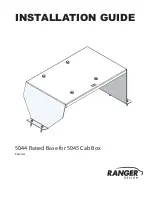
If the engine oils listed in the table are not availa‐
ble, you may add a maximum 1.1 US qt (1.0 liter)
of the following engine oils once only:
R
Vehicles with a gasoline engine: MB-Frei‐
gabe or MB-Approval 229.3 or ACEA A3/B4
R
Vehicles with diesel engines: MB-Freigabe
or MB-Approval 228.5, 229.3 or 229.5
Multigrade engine oils of the prescribed SAE clas‐
sification (viscosity) may be used all year round,
taking the outside temperature into account.
Viscosity of the engine oil
*
NOTE Engine damage due to incorrect
SAE classification (viscosity) of the
engine oil
If the SAE classification (viscosity) of the
engine oil added is not suitable for prolonged
low outside temperatures, it may cause
engine damage.
The temperature readings of the SAE classifi‐
cation are always based on fresh oil. Engine
oil ages when driving as a result of soot and
fuel residue. The characteristics of engine oil
deteriorate significantly at low outside tem‐
peratures.
#
Use an engine oil of the appropriate SAE
classification at low outside tempera‐
tures.
#
Use oil for all-year-round operation.
The temperature readings of the SAE classifica‐
tion are always based on fresh oil. The tempera‐
ture characteristics of the engine oil, especially at
low outside temperatures, can deteriorate signifi‐
cantly due to aging when driving.
Therefore, Mercedes-Benz recommends that you
change the engine oil before the start of the cold
season. Only use an approved engine oil in the
prescribed SAE classification for this purpose.
The viscosity indicates the flow characteristics of
a fluid. With regard to engine oil, a high viscosity
is synonymous with thick liquid and a low viscos‐
ity with thin liquid. Depending on the outside
temperatures, select the engine oil according to
the SAE classification (viscosity). The table shows
the SAE classifications to be used. The low tem‐
perature characteristics of engine oils can deteri‐
orate significantly during operation due to aging
and soot and fuel accretion, for example. A regu‐
lar oil change with an approved engine oil in the
appropriate SAE classification is therefore
strongly recommended.
Additive
*
NOTE Engine damage due to use of addi‐
tives in the engine oil
The use of additional additives in the engine
oil can damage the engine.
#
Do not use any additional additives in
the engine oil.
Miscibility of engine oil
The benefits of high-quality engine oils are
reduced by mixing oil.
We recommend that you only use engine oil of
the same grade and SAE classification as the oil
filled at the last oil change. If, in exceptional
cases, oil of the type in the engine is not availa‐
ble, use another approved mineral or synthetic
engine oil.
Vehicles with diesel engines: if the grade is not
available, you may also refill with engine oils
according to MB-Freigabe or MB-Approval 228.5,
229.3 or 229.5. The top-up quantity is then limi‐
ted to maximum 1.1 US qt (1.0 liter).
You must then have an oil change carried out at
the earliest possible opportunity.
Vehicles with gasoline engines: if the grade is
not available, you may refill with engine oils
according to MB-Freigabe or MB-Approval 229.3
or ACEA A3/B4. The top-up quantity is then limi‐
ted to maximum 1.1 US qt (1.0 liter).
You must then have an oil change carried out at
the earliest possible opportunity.
Engine oils are distinguished by:
R
Engine oil brand
R
Grade (MB-Freigabe or MB-Approval)
R
SAE classification (viscosity)
Technical data 239
Содержание Sprinter 2019
Страница 7: ......
Страница 11: ...NJ Brakes yellow 268 O ABS malfunctioning 268 P ESP deactivated 268 At a glance Instrument cluster 9...
Страница 19: ...ASpare wheel example 227 At a glance Emergencies and breakdowns 17...
Страница 298: ......
















































